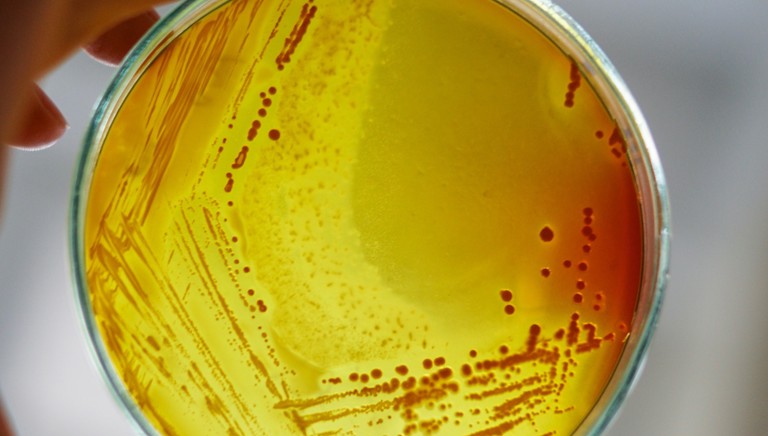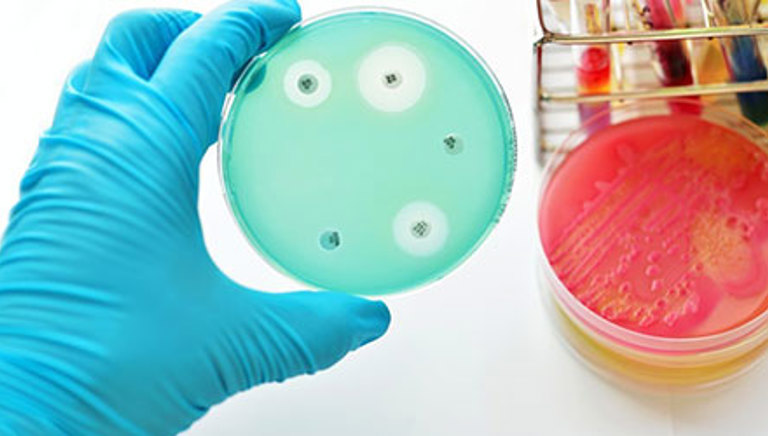Call for urgency to deliver on global pledge for antibiotic incentives
Antimicrobial resistance (AMR) remains one of the top global health threats facing humanity. Despite high-level political commitment, the current structure of global incentives to develop new antibiotics is insufficient and requires urgent resolution.
The England AMR pilot has paved the way, showing what is possible when a novel approach for helping overcome AMR is taken forward, and these efforts must not go to waste. Dr Amit Aggarwal, ABPI Executive Director, Medical Affairs
A new report, ‘Incentivising new antibiotics’ by the Office of Health Economics (OHE), considers how health systems in the UK and around the world can stimulate the research and development (R&D) of new antibiotics [1].
In 2020, the National Institute for Health and Care Excellence (NICE) and NHS England initiated an Antimicrobial Resistance pilot with the aim of incentivising pharmaceutical companies to develop new antibiotics by addressing the issues associated with reimbursement, which historically has deterred companies from pursuing AMR research.
The pilot trialled a subscription-based approach where manufacturers are paid a subscription fee based on the value of the antibiotic, over a pre-specified period, regardless of the volume of antibiotic used. In England, the maximum subscription payment was fixed at £10m per year.
OHE analysis demonstrates that on a global level, it is estimated that an effective 10-year incentive would require £3.5bn ($4.2bn) to adequately cover the entire research and development process for a new antibiotic.
To reach the required level of incentive, individual countries would need to contribute on the basis of the country’s relative wealth and GDP.
The G7 has already committed to a joint agreement on AMR and made a political commitment to
action. If all G7 countries contributed to the global incentive, a proportionate UK share would need to be around £23m per year for 10 years. If all G20 countries (and remaining EU countries) contributed to such an incentive, the UK corresponding share would be around £12m/year for 10 years.
Professor Lotte Steuten, Deputy CEO at OHE and co-author of the report said: “The UK is leading the way, but this will not be enough to stimulate antibiotic development on its own. We estimate that £3.5b ($4.2b) is needed globally per antibiotic, which means international political and policy cooperation is needed to create a large enough incentive to drive the development of new antibiotics that will help address the challenge of antimicrobial resistance.”
The modelling in this report highlights the importance of joined up global level efforts to tackle AMR. While the approach taken in England is not the only proposed solution, with other countries developing their own approaches – it was the first of its kind introduced with the aim of fixing the broken antibiotics market. To see significant progress, other countries need to deploy similar approaches, working together to deliver the scale of funding required for a sustainable pipeline of effective antibiotics.
Dr Amit Aggarwal, ABPI Executive Director, Medical Affairs said: “The England AMR pilot has paved the way, showing what is possible when a novel approach for helping overcome AMR is taken forward, and these efforts must not go to waste.
“The learnings from this pilot are important and now is the time for the next stage. The UK continues to have an important role in supporting other countries follow suit by adopting similar schemes, but it cannot do this without collaboration on an international level.”
- AMR
- Antibiotic resistance
- Antibiotics
- Anti Microbial Resistance
Last modified: 20 September 2023
Last reviewed: 20 September 2023
-
Incentivising New Antibiotics
Download

